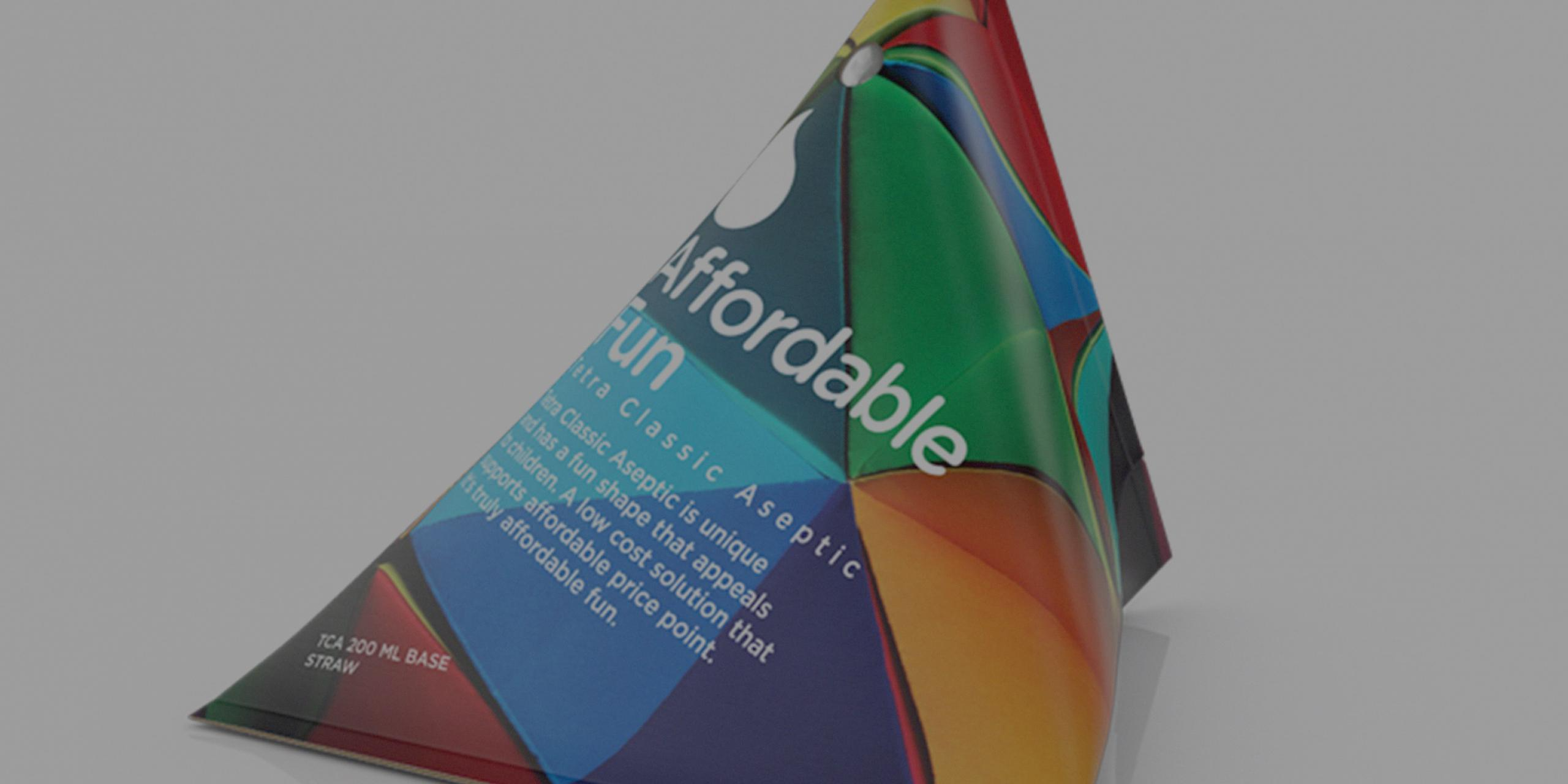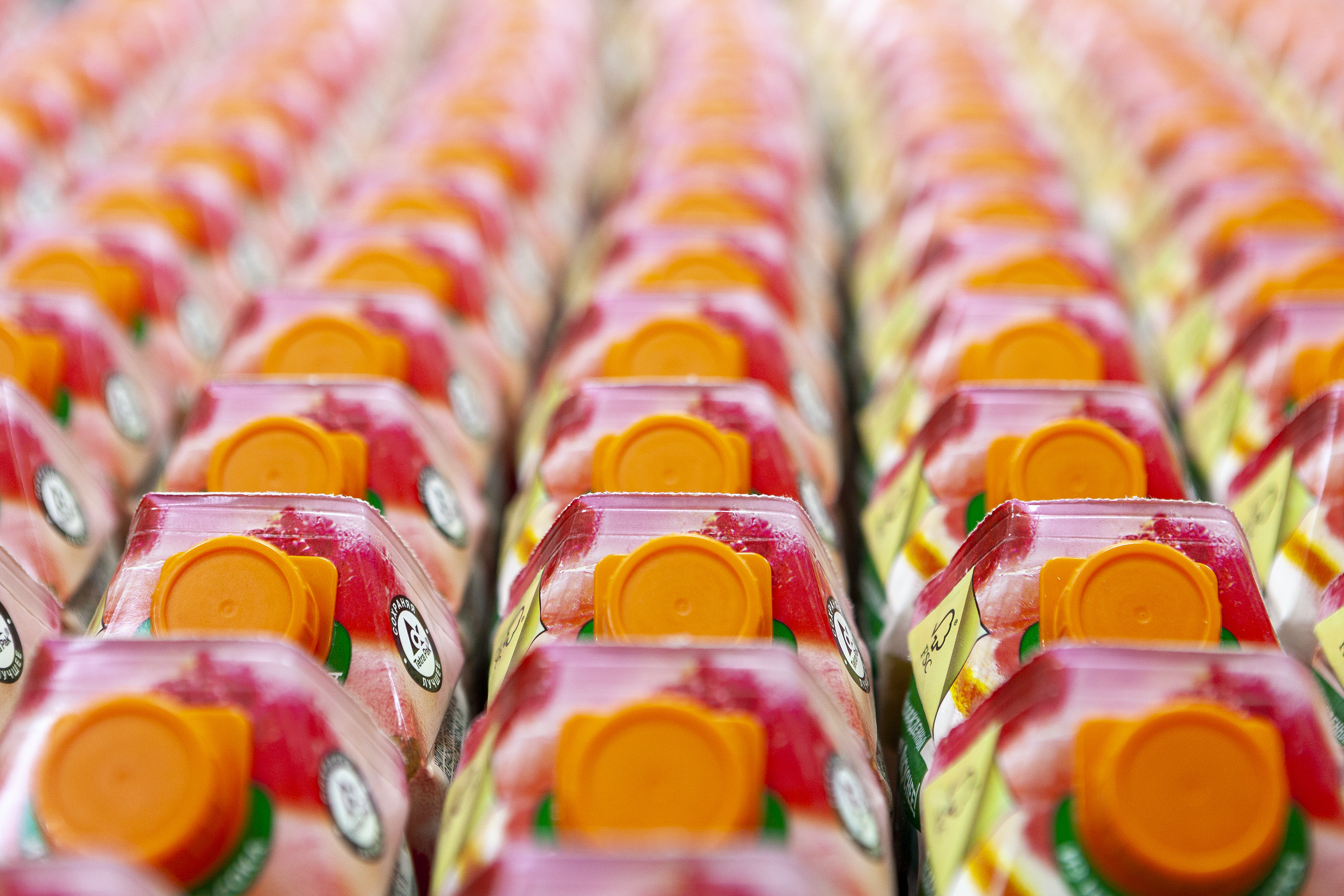
Tetra Pak: From ‘Swedish paper bottles’ to fighting malnutrition in Sri Lanka
When reaching for liquids like milk or juice from store shelves in 170 of the world’s countries, there is a great chance you’re reaching for a ‘Tetra Pak’ carton. Tetra Park, a now global company, was founded on hard work and great ideas; it even landed on Forbes World’s Billionaires List in 2019. But how did Tetra Pak come up with the most successful Nordic invention of all time? And are they still living by their famous credo “save more than it costs”? You are about to find out.
Tetra Pak is a Swedish-Swiss company founded by the Swedish industrialist Ruben Rausing (1895-1983), built on an invention by the Swedish engineer Erik Wallenberg (1915-1995). As the New York Times once wrote in an article on Tetra Pak, company legend has it that Ruben Rausing had an idea in the 1940s when watching his wife make sausages by tying off the ends, and he wondered whether a similar system could be applied to milk.
After his wondering, Rausing went to Tetra Pak’s lab and told the engineers to produce a cheaper, viable packaging system for milk than the former container made from reusable glass bottles. Erik Wallenberg, an engineer at Tetra Pak’s lab, tried to come up with a new packaging solution. After several mistakes and failed experiments, Wallenberg made an invention that later became one of the greatest inventions ever. He found a way to create a mathematical tetrahedron using a single sheet of paper. The tetrahedron met all the criteria; the solution was cheaper, and it had both a minimum waste and a minimum usage of materials. With this invention, Tetra Pak saved more than it costs. A simple idea became revolutionary, and as BBC News put it: “Ruben ramped his business up”!

Prepared for today’s demands?
Much has happened since Rausing established the company in 1951, and today, Tetra Pak is the world’s leading food processing and packaging solutions company. They keep developing new technologies and making improvements – for a more successful company, for sure, but for a more sustainable one, too.
Expectations for all brands have evolved and grown rapidly these past years. And with the vision “Commit to making food safe and available, everywhere”, Tetra Pak cannot hide. Luckily, Tetra Pak has been putting action behind their vision, getting them featured amongst ’50 Sustainability and Climate Leaders’ in 2021 – a list celebrating all the innovators offering sustainable and environmental solutions.
“Tetra Pak, a leading food processing and packaging solutions company, has chosen to focus on an innovation pathway driven by renewability and recyclability, to ensure that the world’s future is not a hungry one”
50climateleaders.com wrote that the expected growth of the worldwide population is 9.1 billion by 2050 – translating to +70% food availability. Because of that, the food sector’s role in tackling climate change is becoming even more imperative. 50climateleaders.com furthermore stated: “Tetra Pak, a leading food processing and packaging solutions company, has chosen to focus on an innovation pathway driven by renewability and recyclability, to ensure that the world’s future is not a hungry one”.
Tetra Pak’s 2030 strategy is based on sustainable operations – including replacing high-carbon, fossil-based materials with low-carbon, renewable, and responsibly sourced materials. Among other initiatives, they commit to “Protect Food”, “Protect People”, and “Protect Planet”, tapping into different SDGs. “Protect Food” alone contributes to achieving SDG 6 out of 17 SDGs. For example, Tetra Pak’s packaging solutions protect food without the need for preservatives or refrigeration, saving energy and making it easier to provide nutritious products. Also, Tetra Pak protects food by implementing sustainable value chains – e.g. through their participation in school milk programmes with the ambition to improve nutrition and help end hunger.
A fight against malnutrition
In 2019, in line with their vision, Tetra Pak joined a new school milk programme in Sri Lanka promoting food safety and recycling. According to the IDF – the International Dairy Federation – a national nutrition survey found that there is a 19,6% prevalence of wasting in Sri Lanka, and that malnutrition is an obstacle for socio-economic development in the country, which has a growing population of 21 million. Plus, according to the Ministry of Agriculture, less than 40% of milk demand is produced locally, which means that the full potential for producing milk, e.g. for school kids, is not utilized.
To address these challenges, the government launched a school milk programme in 2019. As part thereof, Tetra Pak’s customer Cargills Ceylon, a Sri Lankan retail, banking, and restaurant company, started supplying milk in Tetra Fino® Aseptic 150ml packages (one of Tetra Pak’s cartons) to 185.000 school children in 400 schools. The Tetra Pak Fino® Aseptic cartons are filled with locally produced UTH-milk which has two essential benefits: rich in protein and doesn't demand cold storage. Also, Tetra Pak South Asia and the Tetra Laval Food for Development team supported the programme by providing technical assistance and education on proper food safety protocols, environmental education, and recycling – aiming to inspire people and countries to make and be able to make more sustainable choices.
A little more info:
-
Tetra Pak – The history of an idea by Tetra Pak
-
Tetra Pak, a Fortune Founded on a Clever Idea by the New York Times
-
Tetra Pak’s sustainability approach by Tetra Pak
-
How the Tetra Pak became a million dollar idea by BBC News
-
School Milk Case Studies – Addressing childhood malnutrition in Sri Lanka by IDF
- Tetra Pak: Accelerating de-carbonisation and collaborations to pioneer a sustainable future by 50climateleaders